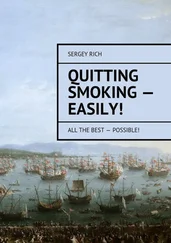“How much money does she make?” said Laura. “What is her yearly compensation?”
“Ten years hence,” said Edmund, “this evening will still be the subject of discussion and interpretation.” No one knew exactly what Laura meant, but it was clear in general that Laura intended to express contempt with the implication also that nothing good would come of such an arrangement.
Laura began to bring in cups, spoons, knives, forks, bread, jam and cheese for the midnight supper.
Marcus, defeated, felt nervous and bewildered. He fell back on a practice for which he had often been denounced, that of drawing upon a store of prepared jokes and epigrams.
“Say, speaking of marriage,” said Marcus, “I heard a good one the other day. A girl says to a friend of hers who is getting married soon: ‘Is your torso prepared?’”
The others looked at him in a frozen-faced silence.
“What’s the joke?” asked Jacob.
Marcus paled. He knew that he was being attacked. But he felt that he must attempt to justify his utterance.
“Don’t you see, she says torso when she means trousseau. It is a genuine Freudian lapsus linguae. ”
“Enough of this Latin,” said Edmund, “it is a dead tongue, and your grammar would shame a Gaul of the second century.”
Marcus, persevering, launched a second effort.
“You are like the Irish,” he said laboriously, “it is as Dr. Johnson said, the Irish are a fair people; they do not speak well of anyone.”
“Spare us your prepared epigrams and quotations,” said Ferdinand, “they resemble canned music.”
“The trouble with you,” said Marcus, “is that you have no sense of humor. Algernon said you had none and I said that you were hilarious. But I see that I was wrong.”
This spontaneous remark was also a success. Everyone but Ferdinand laughed. He did not know why they laughed, but he was too clever to ask that it be explained to him, the trap which had often undone Marcus.
And now they all sat at the table, and ate and drank, and minds and hearts arose as if they danced. Marcus, seated next to Ferdinand, put his hand on his shoulder, and said, still warm with pleasure at the unexpected success of his remark about Ferdinand as humorless:
“You are a fine fellow, Ferdinand. I always admired you and no matter what you say or do, I will continue to admire you.”
“Shut up,” said Edmund, kicking Marcus under the table.
Ferdinand described his purchase of furniture and how he had imposed his scorn upon the merchants of furniture. It was a very interesting story.
“Say,” said Laura, returning from the kitchen where she had just taken her tenth drink, and hurling her lightning-bolt as if she spoke of the weather, “did you know that Irene slept for a whole year with Algernon Nathan?”
“Laura,” said Marcus, torn between guilt and the wish to appear to be the reproachful one.
“Yes,” said Ferdinand, “I heard all about it the first night I went out with Irene.” His tone was matter-of-fact. “What about it?”
“This Ferdinand is without a peer,” said Edmund, “he has no equal either in America or Europe.”
They all saw that Ferdinand had scored an unconditional triumph. It was impossible to make out if Ferdinand had actually known about Algernon, or with quick wit and perfect control recognized that he must not admit his ignorance.
“Are you going home now?” Jacob asked Edmund. “I have had enough pity and terror for one evening.”
“Yes,” said Edmund, who did not want to go but who wanted to hear what Jacob had to say about the evening.
“I will go with you,” said Marcus.
“You stay here or go by yourself,” said Jacob, “we don’t want you with us.” And on that note of judgment the young men left.
NINE: “A MILLION DOLLARS ARE WORTHLESS TO ME”
After long absence, Rudyard visited the teacher who had most befriended him in school, Percival Davis. After Rudyard had been seated in the study of Professor Davis and questioned about himself, Professor Davis said in a flat, but depressed, tone:
“I am dying.”
“We are all dying,” said Rudyard, uneasy and trying to find something to say.
“But I am dying faster than most human beings,” said Professor Davis, unwilling to permit Rudyard to extricate himself from the fact of his own death. “I may be dead in six months. The fact is, I probably will be.”
“I think that it would be boring to live forever,” said Rudyard, pleased by this comment, but still uncomfortable.
“Forever, perhaps: but I would like to live for at least a thousand years,” said Professor Davis passionately, “I would not be bored in the least. I would learn about every great school of painting, both in Europe and the Orient, and I would cultivate the best wines.”
“Yes, you’re right,” said Rudyard, hoping to shift the subject, “it would be wonderful to live for a thousand years!” He felt that through agreement he was at least polite.
Two months after, Percival Davis died of the heart attack he had expected. After hearing the news, Rudyard went strolling with Jacob and told him of the interview.
“It was not proper of him,” said Rudyard, “to confront me with his death. What was there to say? What a pity that we do not have formal utterances for all the important events of life.”
“You might have said,” Jacob remarked, “‘I hope you are wrong. I hope that you are not going to die very soon.’”
“What difference would that have made?” Rudyard replied.
They passed a church where a hearse and other cars awaited the departure for the cemetery. Jacob, as was his wont, wanted to pause to see the coffin carried from the church to the hearse, for now as ever the joys of strict observation were important to him. But Rudyard refused to stop.
“Who wants to see a funeral, anyway?” said Rudyard, and Jacob, discerning the excess of emotion in Rudyard’s voice, yielded to him.
“Two years ago, when a very gifted student died suddenly,” said Jacob, “Israel Brown was asked by the family to make the funeral sermon, for the family as well as the student were without religious belief. The sermon was given in the auditorium of the Ethical Culture School. Israel Brown spoke very well, as he always does. He spoke of the gifts of the dead young man, remarking upon his original gift for certain subjects and making clear the difficulty in general of mastering these subjects. Yet all felt that this might have been a classroom and not the ceremony for the death of a young man. Now what kind of a life is this, anyway? Something important and irreparable occurs and we have nothing to say.”
Moved by these thoughts, Jacob told Rudyard of a recent effort which he had kept secret. Six months before, in mid-winter when tours of the neighborhood were unpleasant, he had written a short novel, although he had never before thought of being that kind of an author. The short novel had seemed good to him. He had placed the manuscript in his desk “to cool off,” as he explained. When two months had passed, he had read his short novel again and decided that it was worthless. It was a Sunday afternoon in April, just before Jacob was due from habit and principle to tour the neighborhood and see what he entitled “the Sunday look.”
Depressed and benumbed that his short novel was worthless, Jacob arose from his desk, went to the window, and gazed at the park, full of human beings of each generation, infants, children, adolescents, parents, the middle-aged, and the old.
Regarding them, he said to himself, “I reject one million dollars, the highest prize of our society. For if I had one million dollars, what good would it do me? It would not help me to make this short novel, which is worthless, a short novel which is good. I can say then that I have discovered that a million dollars are worthless to me, since they cannot help me to satisfy the desire and hope which was important, intimate, and dear to me.”
Читать дальше












